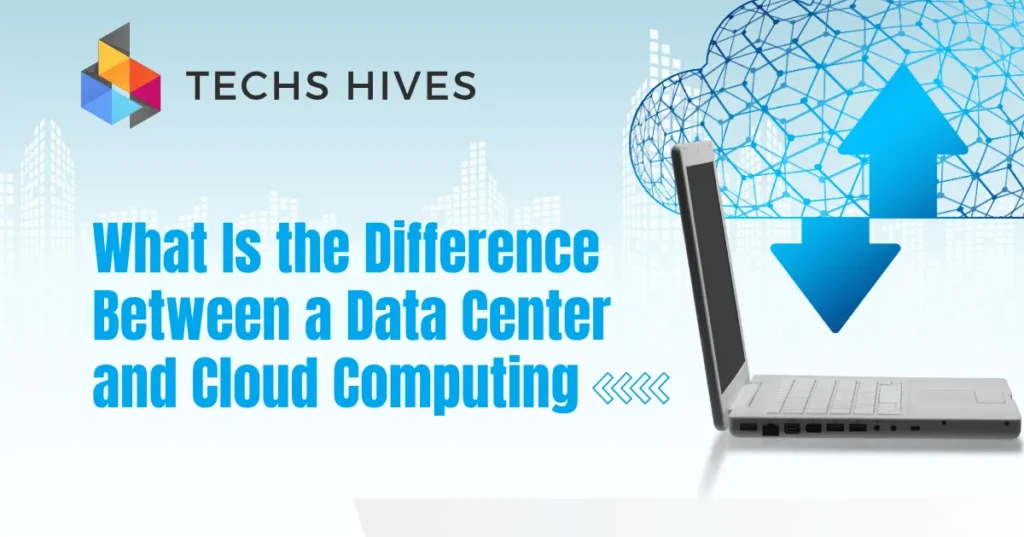Quantum computing is a new type of computing. It uses the principles of quantum mechanics, which is the science of very small things like atoms and particles. Unlike regular computers, which use bits (0s and 1s), quantum computers use qubits. Qubits can be both 0 and 1 at the same time. This allows quantum computers to solve complex problems much faster than traditional computers.
Cloud based services for quantum computing make it easier for people to access this technology. Users do not need to buy expensive hardware. Instead, they can use quantum computers over the internet. This makes it more affordable and accessible for researchers and companies. Cloud services also allow users to collaborate and share resources easily.
Table of Contents
What is Quantum Computing?
Quantum computing is a groundbreaking technology that uses quantum mechanics to process information differently than traditional computers. Classical computers rely on bits as the smallest unit of data, represented as either 0 or 1. In contrast, quantum computers use qubits, which can exist in multiple states at once due to a property called superposition. This ability allows quantum computers to perform many calculations simultaneously, significantly enhancing their processing power.
Another important principle of quantum computing is entanglement. When qubits become entangled, the state of one qubit is linked to another, regardless of the distance between them. This connection enables qubits to share information instantly, leading to more efficient computations. As a result, quantum computers can solve complex problems that would take classical computers a very long time.
Quantum computing has vast potential across various fields. In finance, it can optimize trading strategies by quickly analyzing large datasets. In healthcare, it can speed up drug discovery by simulating molecular interactions rapidly. Additionally, it offers solutions for complex optimization problems in logistics and supply chain management.
Benefits of Cloud Based Quantum Computing
1. Accessibility
Cloud-based quantum computing makes advanced technology accessible to a broader audience. Users can access powerful quantum computers over the internet without needing to invest in expensive hardware. This opens the door for researchers, students, and small companies to experiment and innovate without significant financial barriers.
2. Scalability
Another major benefit is scalability. Cloud providers offer various resources that can be scaled up or down based on user needs. This flexibility allows users to conduct experiments with different levels of computational power, optimizing their research without being limited by fixed infrastructure.
3. Cost-Effectiveness
Cost-effectiveness is a significant advantage of cloud-based quantum computing. Users only pay for the computing power they use, following a pay-as-you-go model. This approach makes it financially viable for more people to explore quantum applications, while also eliminating maintenance and upgrade costs associated with on-premise systems.
4. Collaboration Opportunities
Cloud-based services foster collaboration among researchers worldwide. Users can easily share resources, data, and insights, enhancing the collective knowledge and innovation in the field. This interconnectedness allows for diverse perspectives and expertise, driving further advancements.
5. Rapid Innovation
Finally, cloud-based quantum computing accelerates innovation. Easier access to advanced technology encourages more individuals and organizations to experiment with new ideas and solutions. This acceleration in research and development can lead to groundbreaking discoveries and applications.
5 Top Free Quantum Computing Services
These platforms offer valuable opportunities for users to explore quantum computing without the need for significant financial investment.
1. IBM Quantum Experience
IBM Quantum Experience offers a user-friendly platform for exploring quantum computing. It provides access to real quantum processors and simulators. Users can experiment with quantum algorithms through an intuitive interface and learn from various resources, including tutorials and documentation. This platform is ideal for beginners and advanced users alike.
2. Google Quantum AI
Google Quantum AI provides access to powerful quantum computing tools and resources. Through its Quantum Computing Service, users can run experiments on Google’s quantum processors and utilize the Cirq programming framework. Google also offers a range of educational resources, making it easier for users to learn about quantum computing concepts.
3. Microsoft Azure Quantum
Microsoft Azure Quantum is a comprehensive cloud platform that integrates various quantum hardware and software solutions. It allows users to access multiple quantum providers and tools, such as Q# programming language and Azure Quantum Workbench. The platform supports both beginners and experienced developers, making it a versatile choice for quantum computing exploration.
4. Rigetti Forest
Rigetti Forest is a cloud-based quantum computing platform that offers access to Rigetti’s quantum processors and simulators. Users can run quantum programs using the Quil programming language and access various tools for developing quantum applications. Rigetti provides resources to help users understand quantum concepts and build their skills.
5. D-Wave Leap
D-Wave Leap is a cloud-based platform that provides access to D-Wave’s quantum annealers. Users can run quantum applications using the Ocean software suite and take advantage of D-Wave’s specialized tools for optimization problems. The platform also offers educational resources and tutorials to help users get started with quantum computing.
Getting Started with Free Quantum Computing Services
Choose a Platform
The first step to getting started with free quantum computing services is selecting a platform that suits your needs. Popular options include IBM Quantum Experience, Google Quantum AI, Microsoft Azure Quantum, Rigetti Forest, and D-Wave Leap. Each platform offers unique features, tools, and programming languages, so consider your interests and goals before making a choice.
Create an Account
Once you’ve selected a platform, the next step is to create an account. Most platforms offer free access, allowing you to sign up easily with your email address. After registering, you may need to verify your email and complete any required setup steps to gain access to the quantum computing resources.
Explore Tutorials and Resources
After setting up your account, take advantage of the tutorials and educational resources provided by the platform. These resources can help you understand quantum computing concepts and how to use the tools available. Most platforms offer documentation, video tutorials, and example projects to guide you through the learning process.
Start Programming
Once you’re familiar with the platform and its resources, it’s time to start programming! You can create your quantum circuits or algorithms using the platform’s programming language. Many platforms provide online coding environments where you can write, test, and run your quantum programs on simulators or actual quantum processors.
Join the Community
Finally, consider joining the community around your chosen platform. Many quantum computing platforms have forums, discussion groups, or social media channels where users can ask questions, share projects, and collaborate. Engaging with the community can provide additional support and inspire new ideas as you explore the exciting world of quantum computing.
Future of Cloud Based Quantum Computing
Increased Accessibility
The future of cloud-based quantum computing promises greater accessibility for users worldwide. As cloud infrastructure improves and becomes more widespread, more individuals, businesses, and researchers will have the opportunity to explore quantum computing without the need for costly hardware investments. This democratization will enable diverse applications across various sectors, fostering innovation and collaboration.
Enhanced Quantum Hardware
As research and development in quantum technologies progress, we can expect significant advancements in quantum hardware. Future cloud-based quantum computing services will likely feature more stable and powerful quantum processors. These improvements will enable users to tackle increasingly complex problems and run larger quantum algorithms, expanding the practical applications of quantum computing.
Integration with Classical Computing
Cloud-based quantum computing will increasingly integrate with classical computing systems. Hybrid approaches that combine quantum and classical resources will allow users to leverage the strengths of both technologies. This integration will enable more efficient problem-solving, as users can harness quantum computing’s unique capabilities while still relying on classical systems for certain tasks.
Advancements in Quantum Algorithms
As the field of quantum computing matures, we can expect to see advancements in quantum algorithms and programming languages. Improved algorithms will unlock new use cases and make quantum computing more efficient and effective. Additionally, educational resources and tools will evolve to better support users in learning and applying these new algorithms, further promoting innovation.
Conclusion
Free cloud-based quantum computing services provide a valuable opportunity for individuals and organizations to explore this cutting-edge technology. With platforms like IBM Quantum Experience, Google Quantum AI, and Microsoft Azure Quantum, users can access powerful quantum resources without significant costs. This accessibility encourages learning, experimentation, and innovation in quantum computing.
As technology continues to advance, the potential applications of quantum computing will grow. Industries such as finance, healthcare, and logistics can benefit from the unique capabilities of quantum systems. By taking advantage of these free services, more people can contribute to the development of quantum computing.



